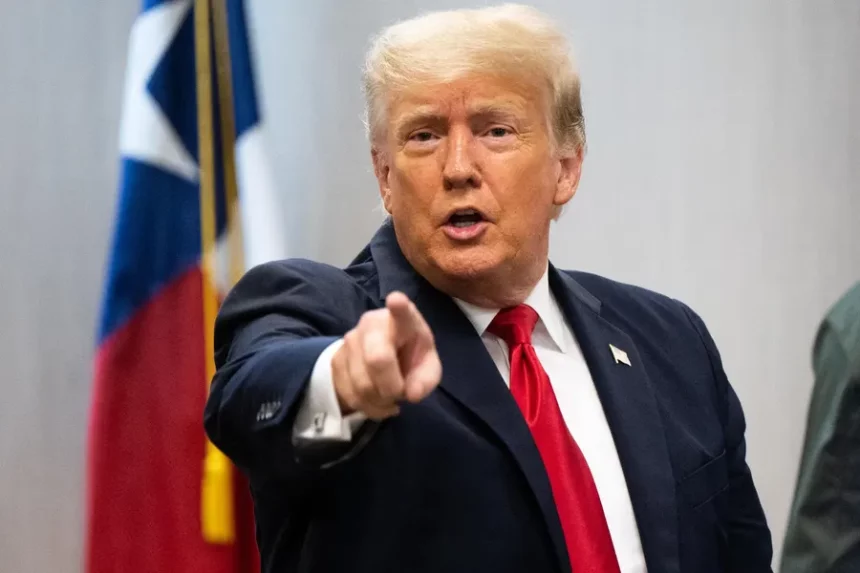President Donald Trump has once again ignited trade war anxieties by threatening to impose tariffs on automobile imports as early as April 2. The announcement, made during an executive order signing session on Friday, has sent ripples of uncertainty through the automotive industry and raised concerns among trade partners.
“Maybe around April 2,” Trump said, responding to a question about the timing of auto tariffs. “I would have done them on April 1… But we’re going to do it on April 2.”
This latest salvo comes amidst a flurry of trade actions initiated by Trump since his return to office on January 20. These include tariffs on Chinese imports, delayed tariffs on goods from Mexico and Canada, and tariffs on imported steel and aluminium.
Read Also: Trade War Looms: EU Prepares Firm Response to Trump’s Steel and Aluminum Tariffs
Since his inauguration, he has imposed a 10% tariff on all imports from China, on top of existing levies; announced and then delayed for a month 25% tariffs on goods from Mexico and non-energy imports from Canada; set a March 12 start date for 25% tariffs on all imported steel and aluminium; and on Thursday directed his economics team to devise plans for reciprocal tariffs on every country that taxes U.S. imports.
The rapid succession of these measures has created confusion among businesses, strained relationships with long-standing U.S. allies, and fuelled worries about rising inflation.
Industry Reacts with Caution
While some industry leaders have expressed support for Trump’s efforts to level the playing field, others have voiced concerns about the potential consequences of escalating trade tensions.
“We applaud President Trump’s idea to look at all vehicle imports to the U.S., an important step forward,” Ford Motor Co Chief Executive Jim Farley said on X after Trump’s remarks. “Comprehensive trade policies are imperative to achieving the president’s vision to strengthen the U.S. auto industry.”
Read Also:
Tariffs Throw a Wrench in Ford’s Plans – CEO
However, earlier in the week, Farley acknowledged that Trump’s proposed and implemented tariffs have added “a lot of cost and a lot of chaos.”
Analysts speculate that Trump’s renewed focus on tariffs, particularly those targeting Canada and Mexico, maybe a prelude to renegotiating the US-Canada-Mexico Agreement (USMCA), a trade pact he previously hailed as the “greatest” ever. The USMCA is scheduled for review in 2026.
“We have not seen any details at this time. Ford, GM and Stellantis continue to believe that vehicles and auto parts that meet the USMCA requirements should not be subject to additional tariffs,” said Matt Blunt, president of the American Automotive Policy Council, which represents the interests of Ford, General Motors and Stellantis.
Impact on Consumers and Workers
The potential impact of auto tariffs extends beyond corporate bottom lines. Higher vehicle prices could burden consumers, while disruptions to the global supply chain could lead to job losses in the automotive industry. The uncertainty surrounding trade policy also makes it difficult for businesses to plan and invest, potentially hindering economic growth.
Read Also:
Trump’s Energy Policy Poses Critical Threat to Nigeria’s Oil-Dependent Economy
Trump’s Trade Tariffs and the African Market: A Looming Economic Storm for Nigeria
Trump’s directive on Thursday required his top economic advisers to draw up plans to impose like-for-like tariffs on goods from any country that collects an import tax on U.S. goods. His nominee to run the Commerce Department, Howard Lutnick, said he expected those reviews to be completed and submitted to Trump by April 1.
The coming weeks will be crucial in determining whether Trump will follow through on his tariff threats and whether a full-blown trade war can be averted. The stakes are high, with the potential for significant economic disruption and strained international relations.












